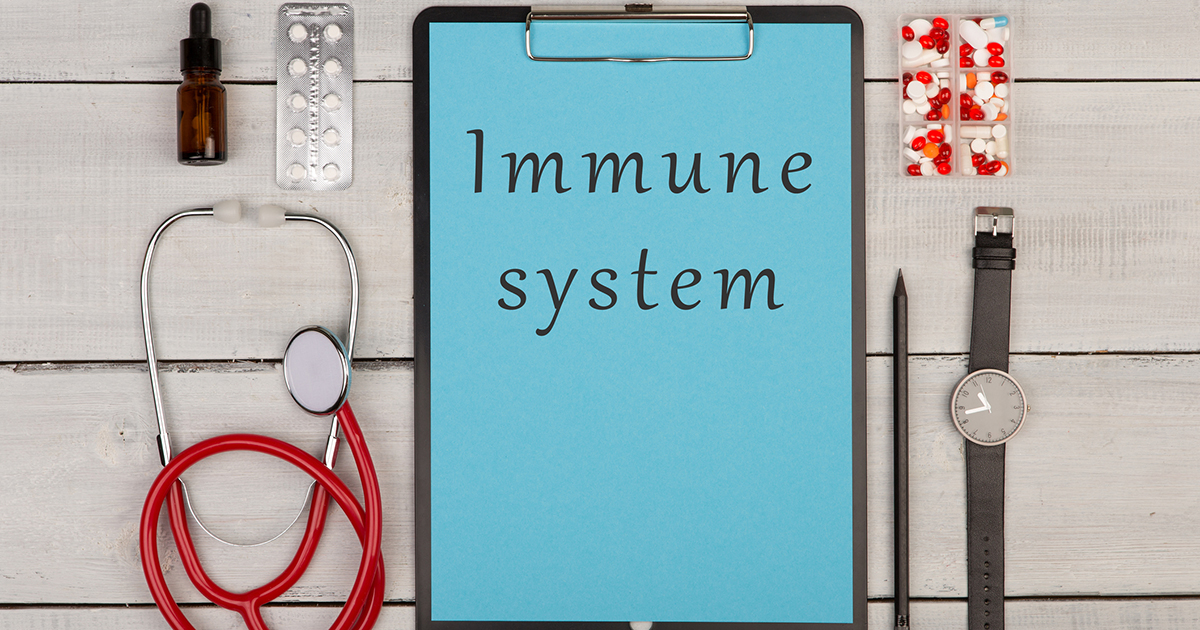Signs Of Gluten Intolerance You Should Stop Ignoring
Celiac disease is an autoimmune disease characterized by a severe intolerance to gluten. It affects about one percent of the population. But it is not the only form of gluten intolerance out there. Even if someone does not have celiac disease, they may still benefit from eliminating gluten from their diet. Here are some common symptoms of gluten intolerance that would merit a talk with a doctor about getting tested. If someone tests positive and still experiences symptoms, they should try an elimination period of two weeks without gluten.
Depression And Anxiety

Research indicates individuals with gluten intolerance are more likely to experience general anxiety disorder, depression, and panic disorders than those who are not intolerant to gluten. Another study reported forty percent of individuals with self-diagnosed gluten intolerance experienced significant anxiety. Gluten can affect depression by causing abnormal serotonin levels in the brain and decreasing the number of beneficial bacteria in the gut, which is also known as the 'second brain.' When certain gluten proteins are digested, they form peptides that interfere with a patient’s central nervous function.
Keep reading to discover another common symptom of gluten intolerance individuals should never ignore.
Autoimmunity

According to quite a lot of detailed research, if individuals have been diagnosed with celiac disease, they are also prone to other autoimmune diseases such as Crohn’s disease, ulcerative colitis, type one diabetes, and autoimmune thyroid disease. Autoimmune conditions occur when the immune system mistakenly attacks the body’s tissues. These conditions make patients particularly susceptible to inflammatory foods such as gluten, dairy, and refined sugar. As such, someone diagnosed with any kind of autoimmune condition may also be intolerant to gluten. Essentially, this boils down to individuals simply being more susceptible to other issues with their immune system if they already have one autoimmune condition of any kind.
Next, find out how a headache can indicate an allergy or intolerance to gluten.
Headaches

Headaches and migraines can be a result of a lot of different things, but for someone with gluten intolerance, they might pop up more often than not. Approximately ten to twelve percent of the Western population experiences regular migraines, but research shows individuals who are gluten intolerant might be more prone to getting them than those who do not have to worry much about eating food that contains gluten. If someone stays hydrated throughout the day, exercises regularly, gets enough sleep at night, and does not drink alcohol, their migraines may be a sign of gluten intolerance.
Uncover how gluten can make someone feel tired now.
Fatigue

Fatigue is a very vague symptom associated with countless health problems. But if an individual feels quite fatigued all the time, especially after eating something containing gluten, it is a clear sign they might be intolerant to it. Research shows approximately sixty to eighty-two percent of individuals who are intolerant to gluten are quite a bit more prone to experiencing tiredness and fatigue after eating foods that contain gluten. One study also found gluten intolerance may lead to iron-deficiency anemia, which also often contributes to chronic fatigue in those who suffer from it.
Explore how a gluten allergy can lead to skin issues now.
Skin Problems

Gluten is a highly inflammatory food, which can affect many body systems, especially the endocrine system. Celiac disease is often responsible for a blistering skin condition known as dermatitis herpetiform. Several other skin conditions are also frequently linked to gluten intolerance, including psoriasis, alopecia areata, and chronic urticaria. Symptoms of these to watch out for include blistering, rashes, sores, red spots, and general inflammation of the face, limbs or trunk of the body. Many of these skin conditions and their symptoms improve quite dramatically when gluten is removed from the patient’s diet.
Continue reading to learn how gluten intolerance affects the nerves.
Neuropathy

Individuals who are gluten intolerant may experience painful inflammation in their joints and muscles. Along with pain and inflammation, those dealing with gluten intolerance may also experience neuropathy or tingling and numbness in their arms and legs. Neuropathy is also quite commonly associated with vitamin B12 deficiency and diabetes. It is also common with frequent alcohol consumption. Although the precise cause of this condition is not known, several studies have shown neuropathy may be due to the presence of certain antibodies related to gluten intolerance.
Reveal one of the most common physical symptoms of gluten intolerance now.
Bloating

Bloating occurs when the stomach feels swollen or full of gas. It is the digestive system’s way of letting an individual know something is wrong in their body, so it is important not to ignore this symptom. Although bloating can occur for countless different reasons, gluten intolerance is a major one of these, particularly when other symptoms are present. According to one study, approximately eighty-seven percent of non-Celiac disease participants reported feeling bloated after eating gluten. If bloating occurs after every meal containing gluten, an individual may be gluten intolerant.
Keep reading to find out the most common symptom associated with gluten intolerance.
Abdominal Pain

According to research, abdominal pain is the single most common symptom of gluten intolerance. One study stated approximately eighty-three percent of individuals dealing with gluten intolerance reported pain as their most predominant symptom. Pain may occur while eating gluten or directly after. Affected individuals may also experience pain hours after eating a glutinous meal when their digestive system is trying to break it down. Painful bowel movements are also a sign of gluten intolerance. Keeping a food diary is the best way to know precisely which foods are problematic.
Learn how gluten intolerance can lead to multiple trips to the bathroom now.
Diarrhea And Constipation

Another common symptom of gluten intolerance is diarrhea and constipation. If either of these two signs is occurring regularly, it could be due to gluten intolerance or allergy to gluten. Patients with celiac disease experience inflammation in the digestive tract after consuming anything with gluten, which damages the gut lining, leading to poor nutrient absorption, digestive discomfort, and frequent diarrhea and constipation. Gluten can also cause significant digestive discomfort in individuals who do not have celiac disease as well. Approximately, more than fifty percent of gluten-sensitive individuals regularly experience diarrhea, while about twenty-five percent experience frequent constipation. Unfortunately, patients with celiac disease may also experience pale and unpleasant-smelling feces due to poor nutrient absorption. Constant diarrhea is cause for concern, as this symptom causes the loss of electrolytes, dehydration, and fatigue.
Next, find out how gluten intolerance can lead to weight loss.
Weight Loss

A sudden and unexpected weight change is a cause for concern and can indicate numerous different illnesses. A gluten allergy is a common disorder that causes unexpected weight loss and is a common side effect of undiagnosed celiac disease. In particular, one study of patients with celiac disease discovered two-thirds had lost weight in just six months leading to their diagnosis. The weight loss can be explained by multiple digestive symptoms, along with poor nutrient absorption due to the intestines becoming damaged from gluten. Individuals can also lose weight due to eating less because of the pain experienced when eating certain foods that contain gluten.
Explore how gluten intolerance can cause brain fog and affect cognitive abilities now.
Brain Fog

Experiencing brain fog means that an individual experiences difficulty concentrating, or experiences short-term memory lapses. Patients may also experience losing their train of thought in conversations or when writing, and they may even become confused and disoriented. Many individuals further describe brain fog as feeling cloudy and having mental fatigue, with difficulty focusing on simple tasks. Brain fog is another common symptom of gluten intolerance, and patients with celiac disease, non-celiac gluten sensitivity, and a brain disorder called gluten ataxia all report different degrees of brain fog. Approximately forty percent of gluten-intolerant patients experience brain fog, and this symptom is believed to be caused by a reaction to specific antibodies in gluten, but the exact antibody is unknown.
Discover how gluten intolerance can lead to anemia now.
Iron-Deficiency Anemia

As the most common nutrient deficiency in the world, accounting for anemia in five percent of women and two percent of men in America, iron-deficiency anemia is another common symptom of gluten intolerance. Iron deficiency causes numerous symptoms such as low blood volume, dizziness, pale skin, shortness of breath, headaches, and weakness. As previously mentioned, nutrient absorption in the large intestine is impaired, causing a decrease in the amount of iron being absorbed from food as well. Iron deficiency anemia is also one of the first symptoms of celiac disease a doctor will notice with a simple blood test. Recent research suggests that iron deficiency may be prevalent in both adults and children with celiac disease too.
Read more about the major indicators of gluten intolerance now.
Muscle And Joint Pain

Muscle and joint pain are also signs of gluten intolerance patients shouldn’t ignore. Many individuals are surprised to experience these symptoms because muscles and joints don’t seem to have anything to do with their gastrointestinal system. However, the gluten an individual ingests sets up inflammation throughout their body when their immune system attacks it as a pathogen or toxin. This inflammation extends to their muscles and joints, which is why they feel aches and pains in these areas. In some patients, the muscle and joint pain they feel resembles the nearly unbearable pain associated with fibromyalgia. In this condition, there are paired trigger points along the body that hurt when they are even lightly touched.
Uncover details on more warning signs of gluten intolerance to stop ignoring now.
Excessive Gas

The inability to digest gluten properly often leads to a build-up of gas. However, some researchers are beginning to believe gluten isn’t actually the cause of excessive gas. Gluten is a protein and gas is most often caused when bacteria attack carbohydrates that enter the large intestine. In the case of an individual with gluten intolerance, these carbohydrates may be substances called Fermentable Oligo-, Di-, Mono-saccharides, and Polyols, or FODMAPs. These types of carbohydrates are often found in wheat, rye and barley products. The body doesn’t digest FODMAPs well, even if the individual isn't intolerant to gluten. As a result, bacteria cause them to ferment in the colon and produce gas. Some researchers believe FODMAPs not only play a role in developing excessive gas but in the joint and muscle pain associated with gluten intolerance.
Get more information about the symptoms linked to gluten intolerance now.
Aerophagia

Aerophagia is when an individual compulsively swallows a lot of air. IN this condition, so much air is swallowed that it leads to bloating and other uncomfortable symptoms of the gastrointestinal tract such as belching, flatulence, and a distended abdomen. Swallowing air is clearly a cause of too much air in an individual’s stomach, and it can contribute to the already unpleasant symptoms experienced by those dealing with gluten intolerance. Most of the air pulled into the stomach is released through belching, while the rest of it is either absorbed by the small intestines or released through the anus. Doctors aren’t sure why individuals who are gluten intolerant also swallow a lot of air when they eat.
Discover another key warning sign of gluten intolerance now.
Gastroesophageal Reflux Disease

Gastroesophageal reflux disease (GERD) is another sign that might point to gluten intolerance. It occurs when the sphincter that closes off the esophagus from the stomach doesn’t close all the way. Because of this, what's in the stomach can reflux back into the esophagus, which is the tube that connects the stomach to the mouth. The symptoms of gastroesophageal reflux disease are heartburn, and sometimes patients can taste the acid of the stomach juices at the back of their mouth. Some affected individuals do not have heartburn with GERD, but experience an unproductive cough and trouble swallowing. They may even have asthma symptoms. Gastroesophageal reflux disease can be a consequence of the inflammation that occurs when the body attacks the gluten protein.